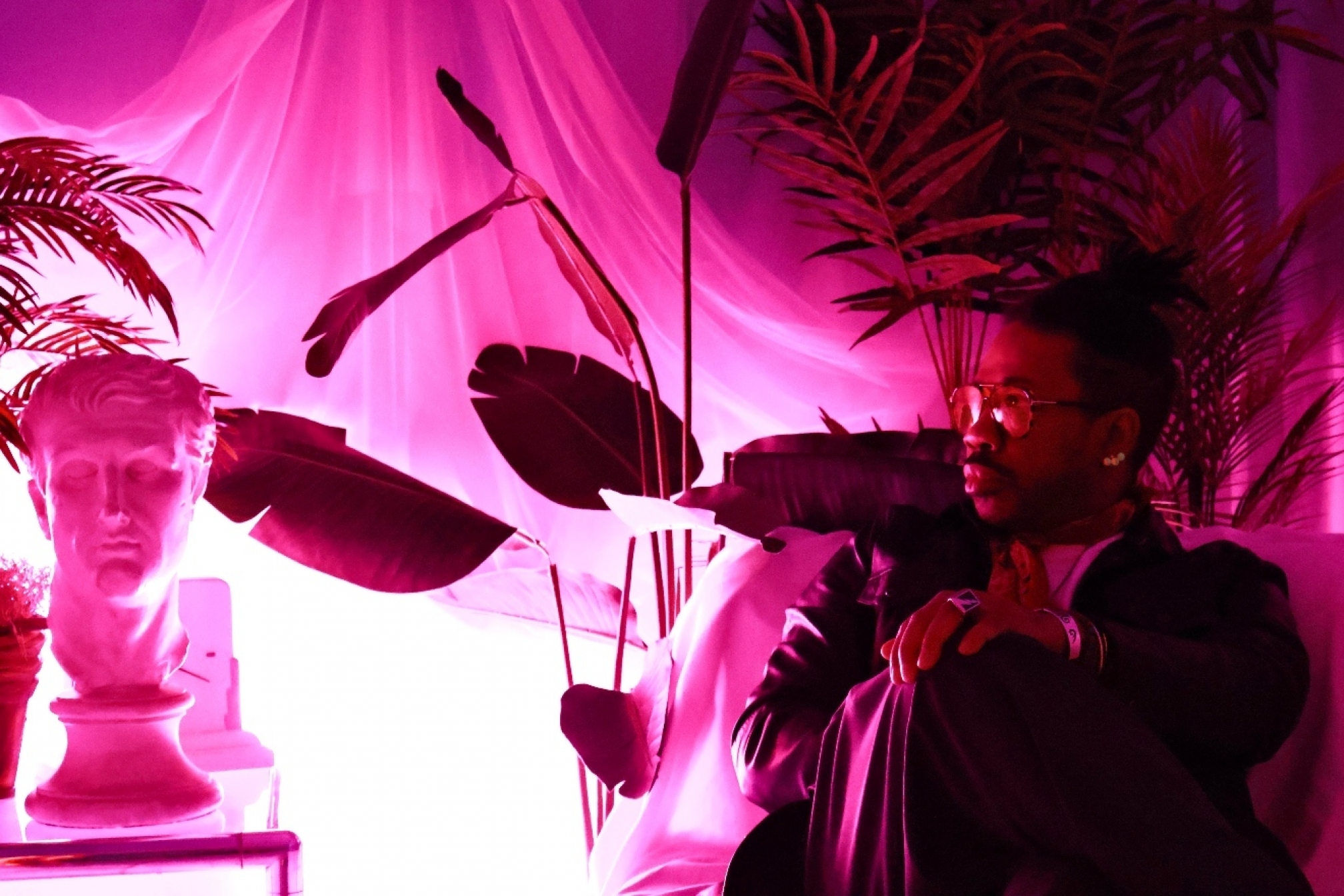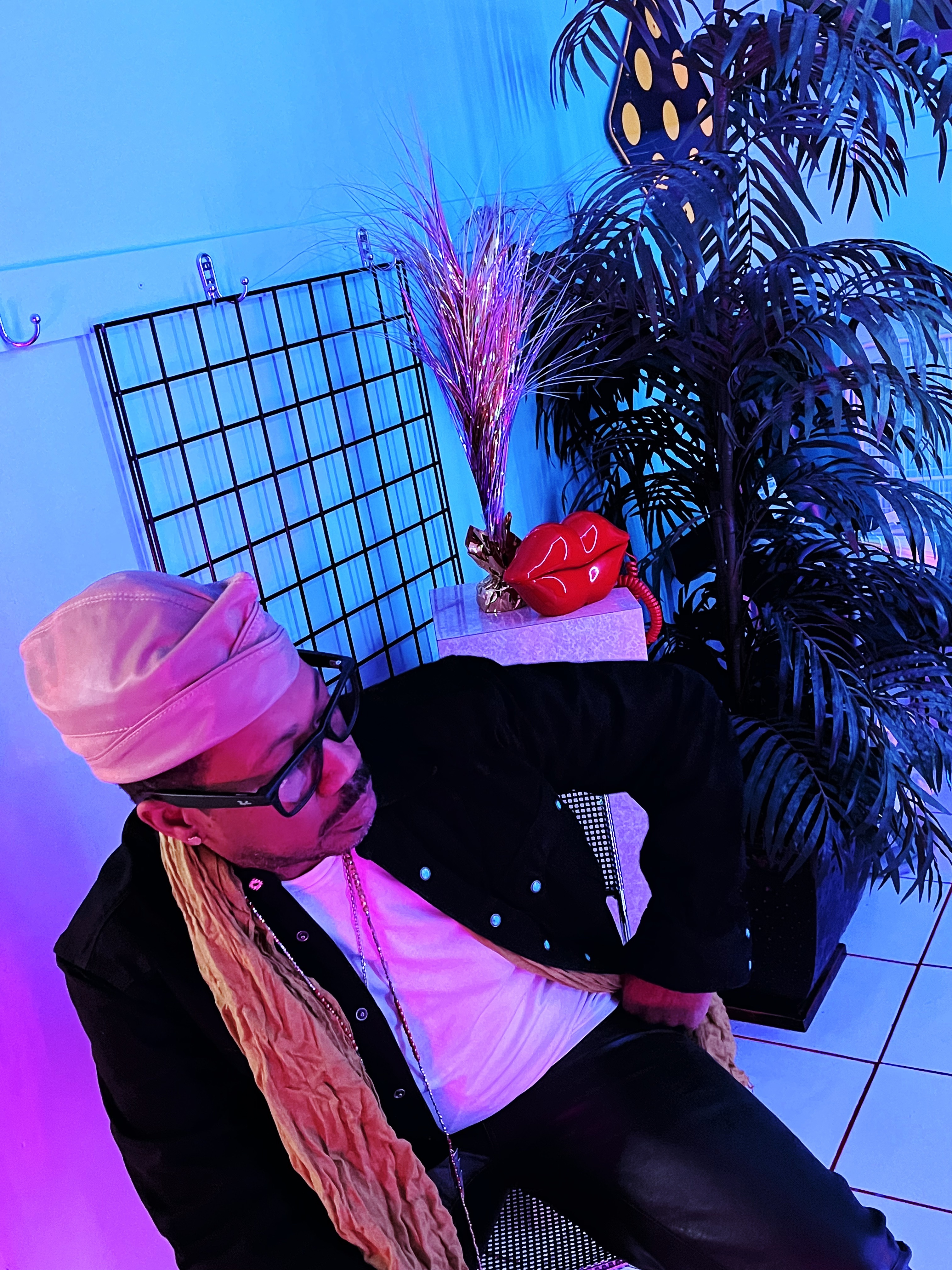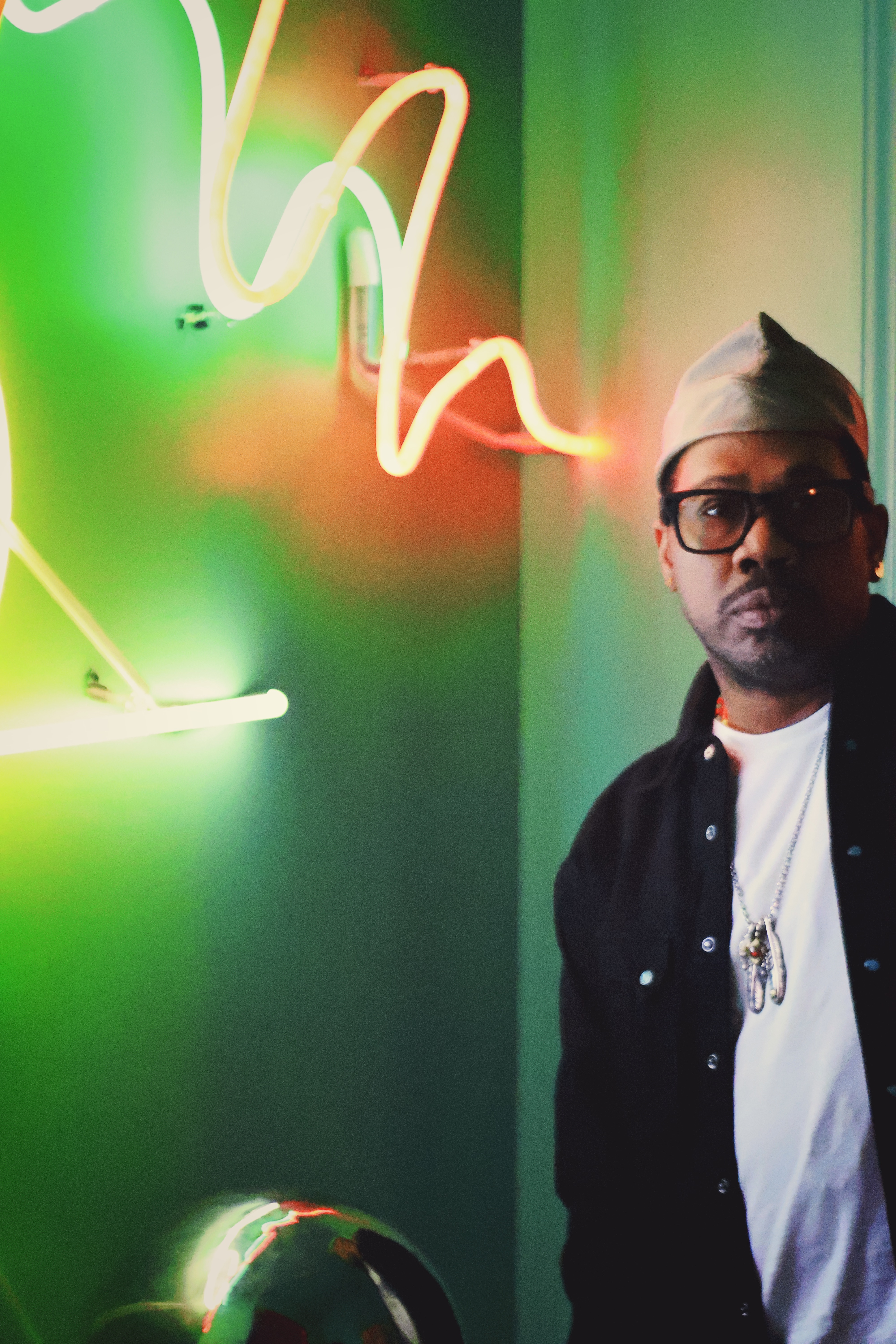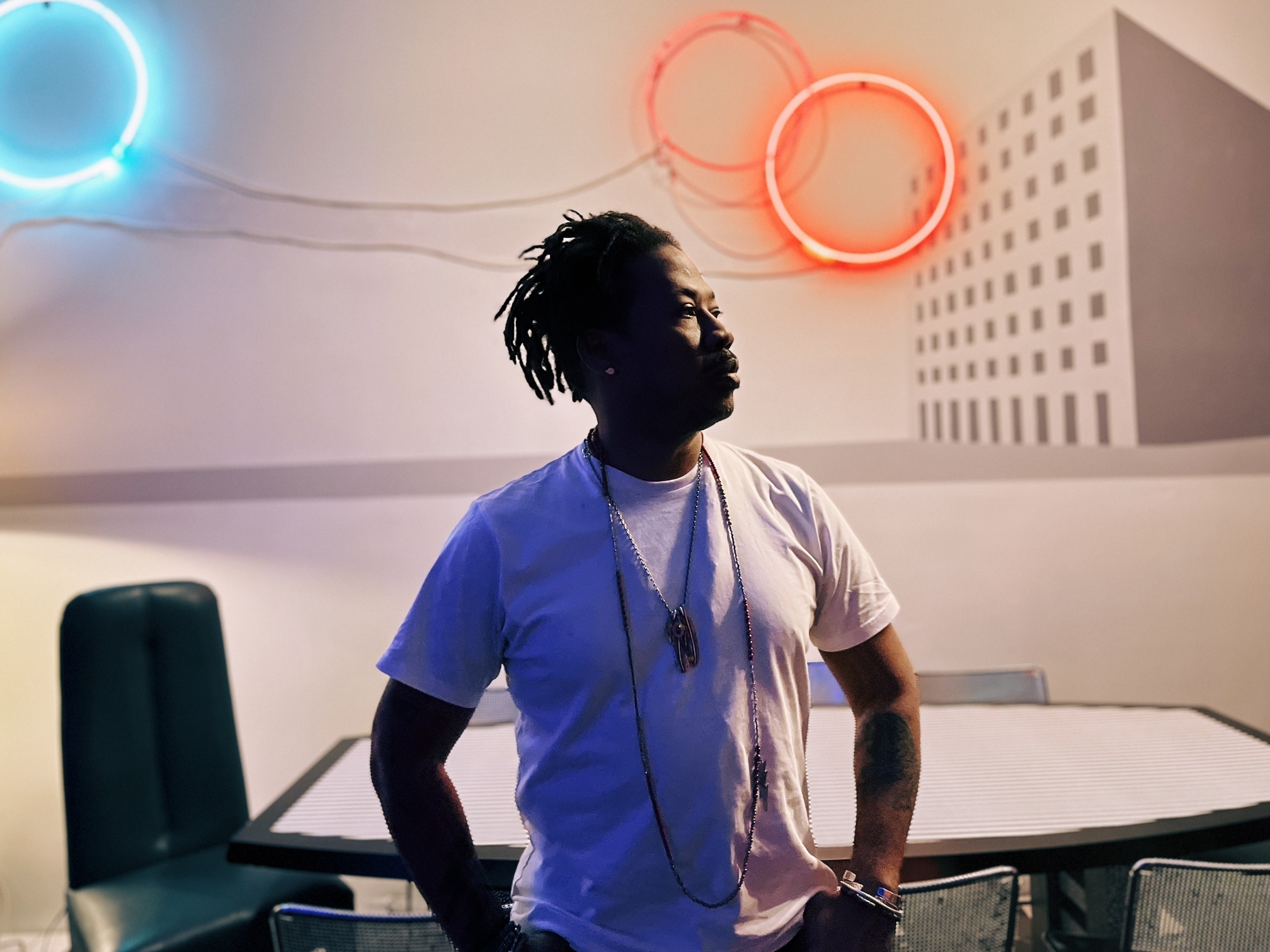 Interviews
Interviews
‘Lift Off’: Ron Trent’s sonic storybook
Mengzy speaks with the artist on his new album and tour, celebrating the past and future
Ron Trent is on the move again.
After spending the last five years in the United States, the house pioneer is back on a global tour with a brand new album to promote and, as Mixmag Asia learned, to educate and tell sonic stories with.
Set to release on May 23 via Amsterdam-based Rush Hour Music, ‘Lift Off’ will be presented as a ten-track, double vinyl album featuring day and night variants of conceptual artwork created by Pointless Illustrations closely together with Trent.
Bringing together compositions and collaborations from the depths of the producer’s catalogue over the last ten years, the project features vocals from Harry Dennis and Leroy Burgess alongside virtuoso jazz guitar solos from Lars Barthkuhn on ‘Her’, ‘Let Me See You Shining’, and ‘Street Wave’, respectively.
Everything else on the album, which blends R&B, jazz-funk, house, new wave, and more, was played by Trent “doing [his] Prince thing,” as he jokingly put the impressive feat.
At the heart of ‘Lift Off’ is a desire to look forward while paying homage to the past, Mixmag Asia discovered recently on a call with the ‘Altered States’ artist ahead of his three Asia appearances…

What’s the significance of the title ‘Lift Off’? I have some ideas about what that could mean, but I'd love to hear it from you first.
‘Lift Off’ is a combination of things. Everybody, of course, is relating it to me travelling a lot again but it's really more of a nostalgic ode to a lot of the titles and album covers that I appreciated when I was coming up and collecting music.
It was a lot of simple terms, a lot of references of travel, high-fidelity life, fashion… and I wanted the kind of artwork that expressed that sentiment, which is kind of a retro, ancient future kind of aesthetic going on.
It's airbrushed and references some of our previous big album covers like ‘Seven Mysteries of the World’ by MSFB - that was a big inspiration and a lot of album covers that came out in the 80s and the 70s. There’s a certain aesthetic.
Face value, ‘Lift Off’, of course you think ‘ascending’, right? So, it’s ascending, but it's looking back to go forward.
You’ve just touched on my second question: when I saw the artwork and the title of the project, I thought immediately of Afrofuturism… does that hit the nail on the head?
That's absolutely correct. It means we did the job. We did the job.
That definitely got communicated visually and I think also speaks to the scope of the genres in the release. It's funny because Afrofuturism in its heyday is about the future, but now it's also simultaneously a nostalgic element. So, that's interesting.
Absolutely. Ancient future. I mean, that's more or less what it is because this album is kind of a dedication to, almost like a musical storybook, sonic storybook, of the beginnings or the soundtrack of what has become dance music because at this time and stage that I'm at, especially, it's more storytelling time anyway.
I've been around for a while, you know, so for a newer generation, it's kind of getting them to pay attention to where they come from, you know, where this comes from. I think that kind of gets lost in today's society because you have social media, you know, everybody's a DJ, everybody's this, everybody's that but nobody really understands a lot of times where these things come from, the story part of it.

You made these tracks over the span of a decade. Any anecdotes you'd like to share about their origins?
One of the older tracks on the album, I think maybe even the eldest track, is ‘Woman of Colour’, which was kind of a remake of a Frankie Knuckles remix that I never got a hold of because it was on test press back in the '90s or something like that. I think I might have even asked Satoshi Tomiie, who did the remix with Frankie at the time, like, “Hey, man, you remember this remix that you guys did of Victoria Wilson James?” and he was like, “Nope.” Like, he didn't even remember it.
So, I remade it for myself and then I revisited it after a while. It’s more of an ode or reference to that Frankie Knuckles, David Morales era of Def Mix, because it’s in the same musical production style. So, there's a lot of points of reference, even with these tracks and stories that go along with each one of them.
‘Just Another Love Song’, that's your own vocal, right?
Yeah, that’s me singing.
People don't realise it, but that's a new wave tune and making reference to that side of things because we were heavily influenced by new wave and Italo disco and electronic music that was coming out of Europe like Depeche Mode and New Order. It's also a reference to Jamie Principle’s ‘Your Love’, which was one of the first big house records, but was more of an alternative record for us, you know?
Matter of fact, when we heard ‘Your Love’, we thought Jamie was from somewhere else. We didn't know he was from Chicago! Because if you listen to ‘Your Love' and ‘Waiting On My Angel’ and all that kind of stuff, you can put it right up there with the new wave sound that was coming out from overseas, so it's a reference to that.

Speaking of influences, who's an influence that you think your fans may be surprised by or is a dirty secret musically?
You know, I think I've pretty much mentioned most of the people that I have been inspired by or have worked with or wanted to work with. I mean, ‘Hot Ice’ on the album is really inspired by Wally Badarou, who was a big time producer from the ‘80s. Other than that, alternative groups that I was listening to coming up, I mean all the way down even to The Romantics, which is a group I used to really like too, back in the day.
What people don't really realise is how big that was for us in Chicago, in particular. They think house music and they think, you know, formulaic four on the floor, boom, boom, boom tracks… No. It's very vast and very complex and, you know, kind of like - we were more into obscure music than anything else and the discovery of new music than anything else.
So, I think it's actually kind of sad that actually it's got formulaic because people think that that's what it is, but it's not at all. It's very - more imagination music, obscure music, deep music, which is why we called it the deep house. Not because it's jazzy chords and stuff like that. We called it deep because it was obscure music and that's what it's kind of about. And that's what this is about too. You know what I mean? So, no really dirty secrets.
Mengzy is Mixmag Asia’s Music Culture Columnist, follow her on Instagram.
Cut through the noise—sign up for our weekly Scene Report or follow us on Instagram to get the latest from Asia and the Asian diaspora!


